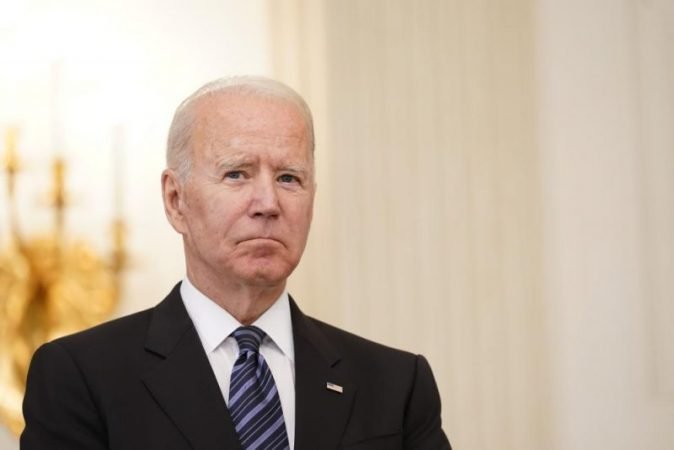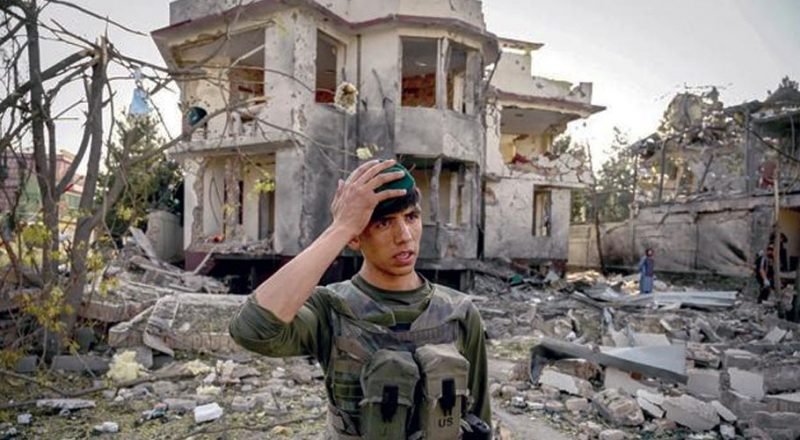Why Biden is getting it wrong on Afghanistan

The American withdrawal has attracted criticism worldwide for how it left its Afghan allies in the lurch. For Joe Biden, it became a catch22 situation – Damned if you do and damned if you don’t. The Afghan war had stretched for nearly two decades and cost 2 trillion to US taxpayers and showed no signs of ending. Taliban continued to fight with the support of its external supporters (read – Pakistan) and emerged stronger than before. The insurgency continued as they retreated to Afghan hinterlands and Af-Pak border regions. Americans were getting tired of the war as they felt that the US was getting involved in a conflict in which it should not have got involved in the first place. The core voter base of Democrats who support a cut in defence expenditure and increased social security spending are pretty vocal in their assertion – “this isn’t our war.” Despite this, US withdrawal seems to have pleased no one except the Taliban.
This argument gets many things wrong about the casus belli of American involvement in the Afghan civil war. First, America was not fighting someone else’s war. It was fighting a war in which one of the objectives directly concerned the safety and security of the American homeland. Islamic Emirate of Afghanistan was evolving to be a state espousing regressive ideals and harbouring terror groups that had global ambitions that would have eventually affected the USA and its allies. They oppose the freedoms and rights granted by a liberal state of the 21st century and seek to establish an unsustainable theological state which would have been a threat to American interests apart from traumatizing its citizens.
America needs to rethink its war strategy and objectives rather than abandoning the war effort altogether. The US kept dumping money and advanced weapons into Afghanistan without caring for a comprehensive restructuring of Afghan forces. Afghan forces suffered from poor leadership, logistics, and corruption. As a Taliban commander said – the Afghan Army has no ideology other than fleecing Americans. In their two decades of training Afghan forces, the Americans only created a force capable of operating the checkpoints, conducting small raids with air support, but not a self-sufficient force that can take care of the security situations of the country. The mujahideen that had successfully fought the war in 2002 with American and British support could not fit into a western-style army after fighting for years under feudal landlords. The threats emanating from the restive border with Pakistan needed a larger fighting force, so the Afghan Army expanded in size without caring for quality leading to the recruit of men who lacked the commitment to the country which any citizen joining armed forces ought to have. “

The US aid went to fill the pockets of corrupt bureaucrats and generals rather than enhance the armed forces. Generals pocketed money by putting up “ghost soldiers.” During the war, Afghan soldiers stood guarding the checkpoints with Tanks and Armor vehicles lacking fuel and weapons empty on ammunition. The inadequate skillset of the Army meant the tasks conventional forces could accomplish needed the better trained special services, which could not fight to its full potential due to a lack of air support and ammunition. The Afghan human resource base was left untapped to reach its potential, while the US aid was not optimally utilized due to corruption and mismanagement. The US could not pressurize Pakistan to stop meddling in Afghan politics and prevent it from taking sides. Despite extensive cooperation with Pakistan across all sectors, including defence and huge amounts spent on aid, the US could not prevent Pakistan from financing and arming the Taliban, which capitalized on the power vacuum following US exit. Without external support, the Taliban could not have mobilized resources to undertake this massive offensive which saw all the provincial capitals falling under their control. Pakistan must be held accountable for this blatant interference in the affairs of another sovereign country. In the current 2021 offensive, only the Afghan special forces were able to put up resistance, while other wings of the Afghan military fell apart like a pack of cards. Even vacating air bases in Afghanistan proved to be a blunder as the US could not provide the required air support for Afghan ground troops.
Taliban, on the other hand, proved to be very diligent in its planning. It has changed a lot since the 1990s and has learned from its past mistakes. Though it might not have changed some of its fundamental objectives, it certainly knows that it cannot rule the country isolated as it ruled in the 1990s and also understands the importance of having allies that will not hinder its capture of power and also be economical and strategic allies upon the successful establishment of their Islamic emirate.
The USA must introspect itself and reconsider its decision to exit from the Afghan war. Simply blaming Afghans for incompetence is not enough. The US must establish Afghan institutions that are resilient enough to withstand the military threats that emanate due to the country’s complex past. Simply leaving Afghans to their lurch will not help in boosting America’s credibility or help protect the American homeland from future threats. The US must try to change its strategy in the Afghan war rather than exiting the war altogether. Afghans also have a right to live under a democratic government with their human rights and freedoms respected, which would be denied under the Taliban. A stable and prosperous Afghanistan free from the rule of radical elements is in US interest.



















